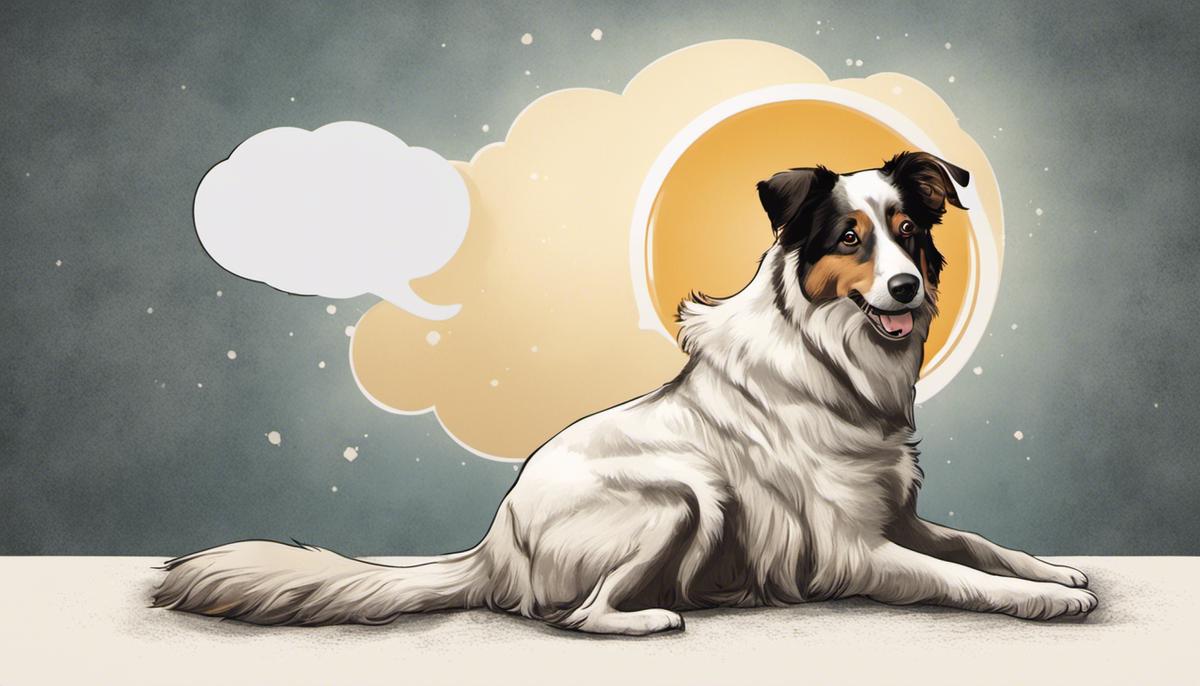
We often say that the health of an individual can be determined by examining their daily habits and bodily functions. This idea is especially true for our canine friends. A dog’s stools can tell a wealth of information about their health condition. An unusual change, such as soft stool, can be a red flag signaling various underlying issues. Understanding the causes leading to this condition is the first step towards reversing or controlling the situation. This crucial awareness will help dog owners to provide the best care for their pets, mitigating any possible dangers before they potentially escalate.
Understanding What Causes Soft Stool in Dogs
The Mystery Behind Your Dog’s Soft Stool Uncovered
Life sometimes revolves around little mysteries, and if you happen to have a four-legged family member, one such puzzler can be, “What’s causing my dog’s soft stool?” As much as we love our furry friends, this is one aspect of pet ownership that many of us don’t look forward to dealing with.
However, it’s essential for us to understand what might be behind this irregularity for the sake of your pet’s health and your household’s sanity.
There are numerous possible triggers behind your pooch’s soft stools. Yes, that’s right, it’s not just about what Fido has been snacking on lately. The reasons could range from diet and medication to an underlying medical condition.
It’s common knowledge that a sudden change in your dog’s diet can incite digestive upheaval. Dogs, like humans, have their favorite meals and may not react well to a sudden swap. Therefore, if your household recently switched dog food brands or has introduced a new treat, this could very well be your culprit!
Medications, too, can disrupt your dog’s digestive system. Doggy antibiotics are WOOF – known offenders when it comes to causing soft stool. The medication may eliminate not only harmful bacteria but beneficial ones too, leading to an upset stomach and softer-than-normal stools.
In some cases, an underlying health condition may trigger soft stool in your pup. Parasitic infections, food allergies or intolerances, and even stress can cause such symptoms. No, dogs are not immune to our human worries such as moving houses or introducing a new family member.
Despite these potential triggers, always remember that your furry friend is unique. It’s imperative to observe and understand your dog’s habits and tendencies to be able to piece together the puzzle. If soft stool persists for more than a couple of days or if other worrying symptoms accompany it like vomiting or lethargy, seeking professional help is a must. Your trusted veterinarian will be able to provide the necessary tests to rule out more serious conditions.
Remember that being a dog owner means embarking on a journey filled with so much love, lots of frisbee fetches, and yes, a tale or two about stool scoops. So the next time you spot your dog having a soft stool, take a moment to investigate rather than worry. Always keep an eye on your dog’s overall behavior and health because, in the end, it’s the steps we take to ensure their happiness and health that truly make our households a home!

Recognizing the Dangers of Persistent Soft Poop in Dogs
Unlocking the Mystery: The Health Implications of Your Dog’s Soft Poop
Transitioning from understanding the complexity of human health nuances to deciphering your canine companion’s health can indeed be a tricky affair. Most pet parents, like us, find the pivotal clues within our pet’s idiosyncrasies, specifically absorbing details as humdrum as their waste. So, when should we start worrying if Fido’s poop is a bit too soft, and could this potentially signal a deeper health crisis in the making?
One of the foremost signs that may indicate a potential health problem in our four-legged friends is any significant alteration in poop consistency. While soft stools can occur occasionally and may be nothing more than a product of hastily gobbled-up scraps from the kitchen counter, it might sometimes be an early indication of alarming health troubles, including gastrointestinal issues, allergies, or even more serious ailments.
Befuddling as it may be, understanding why your dog’s stool is softer than usual can at times be as simple as exploring their diet. Dogs, much like their human counterparts, can sometimes exhibit adverse reactions to certain types of food. An abrupt transition to a novel food type or even readily available human meals laden with spices could incite gastric irritation, leading to softer stools. Therefore, acknowledge paramountcy in maintaining a consistent, healthy, and balanced diet – a primary determinant for your dog’s health and happiness.
Good old stress and anxiety can be sly villains too. Manifestations can be physical as well as emotional, potentially leading to softer stools. Our loyal companions are adept at sensing our stress levels and might exhibit anxiety themselves, especially during periods of substantial adjustment such as moving houses or introducing a new family member. These situations can prompt transformations in poop consistency too.
Intriguingly, intestinal parasites are a commonplace occurrence in dogs, acting as a clandestine trigger for softer stools. These unwanted tenants can include worms such as hookworms, whipworms, or minuscule one-celled organisms like Giardia. Regular deworming and maintaining your canine buddy’s hygiene can aid significantly in preventing these parasitic invasions.
There’s no overstating the importance of regular veterinary check-ups and vaccinations, specifically to ensure your pooch’s gut health remains on point. Tracking for any changes including but not limited to, the frequency, color, and content of your dog’s stools is an obligation that all dog parents have.
While soft stools are not always a cause for panic, persistent instances, especially those accompanied by other symptoms such as loss of appetite, lethargy, vomiting, or weight loss should definitely ring the alarms for a veterinary consultation. Remember, your cuddly, tail-wagging friend relies entirely on your vigilance for their wellbeing.
In the labyrinth of pet parenthood, when overwhelming love coexists with the onus of responsibility, detecting, understanding, and addressing your pet’s health signals can indeed be a daunting challenge. The journey from seeing a change in your dog’s stool to understanding the potential implications is one such challenge. As pet parents, let’s be steadfast in our commitment to making this journey smoother and ensuring our furry friends live their healthiest, happiest lives.
Ultimately, your canine companion’s health is a much larger masterpiece that goes beyond merely decoding stool consistencies. It’s an intricate dance between precise observation, accurate interpretation, and prompt action. To all the dog parents out there, let’s continue sharing in this journey of love, responsibility, and indeed, deciphering mysteries of the softer kind!

Solutions to Firm Up Your Dog’s Poop
Now that we’ve laid the foundations for understanding the potential causes of soft stools in dogs, it’s time we delve into measures that can be taken to help our furry friends have firmer stools. As devoted pet parents, it’s our job to ensure our dogs are happy and healthy. With that said, it’s entirely possible to step in and ease this somewhat unpleasant predicament.
Let’s start with the diet again – that seems like a good place since it’s often the cause. A diet high in fiber can often harden a dog’s stool. Natural sources of fiber, such as pumpkin or sweet potatoes, can be introduced into their diets gradually. Always remember that these changes should take place over a week or two, not instantly. Rapid alterations in diet may lead to further stomach distress.
One beneficial addition could be probiotics, which are often helpful in maintaining a healthy digestive system. Probiotic supplements specifically for dogs are available, or yogurt with live cultures can also be included in their diet. Balance is key, here, so be sure not to go overboard with quantities.
Hydration can’t be neglected. Water plays a significant role in a dog’s digestive health. Make sure the water bowl is always filled with fresh, clean water. This will aid digestion and can contribute to firmer stools. Similarly, regular exercise is essential as it assists in efficient digestion and strengthens the overall metabolic process.
Stress can often sneak up as a resilient factor affecting a dog’s stool consistency. Dogs, like humans, are susceptible to emotional stress and anxiety. Try creating a calm and stable environment at home, keeping noise and environmental changes to the minimum, and maintaining your dog’s routine as consistent as possible.
Lastly, if your furry pal continues to have soft stools despite these changes, it’s important to have a heart-to-heart with your veterinarian. They may suggest a prescription diet or further testing to rule out more serious health issues. Also, remember that preventive care such as regular deworming and vaccinations can avoid complications that could lead to soft stool.
Simply put, being a mom or dad to a dog can sometimes be a little tricky, but through these challenges come immense love and loyalty. So, here’s to all the pet parents rolling up their sleeves and doing their best to ensure their dogs lead the happiest, healthiest lives possible. It’s not always a walk in the park, but it’s absolutely worth the muddy pawprints traipsed across our freshly cleaned floors.

Just as we take the time to care for our own health and monitor any changes, our furry friends deserve the same consideration. Regularly checking and maintaining the consistency of your dog’s stool proves to be an efficient preventative measure. Coupled with effective solutions like altering diet, encouraging hydration, and employing beneficial probiotics can make a significant difference in your pet’s digestive health. Remember, persistently soft stool is not normal and warrants a consultation with your vet. After all, diligent observation and care uphold our responsibility to give our dogs a healthy, happier life.
{CONTENTPOLL [“id”: 58]}
Legal Disclaimer: This article is for informational purposes only and does not substitute for professional veterinary advice. Consultation with a qualified veterinarian is essential before making any decisions regarding pet health.





